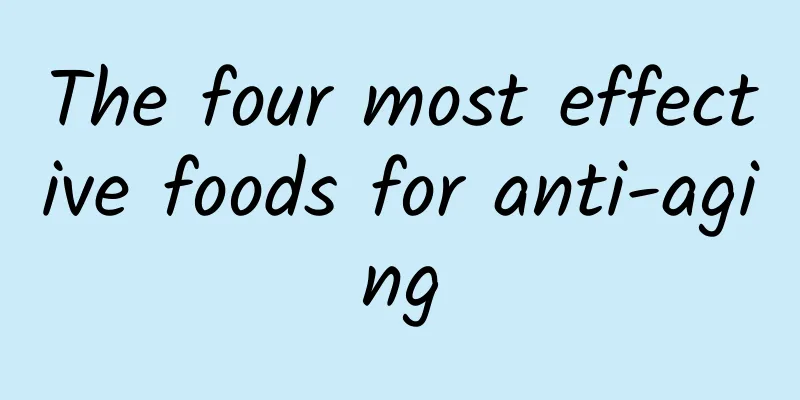What is Oxfam? Oxfam reviews and website information

|
What is Oxfam? Oxfam is a non-governmental international development and relief organization. It was founded in 1942 as the Oxford Famine Relief Committee. Its initial purpose was to provide food to the poor. It later developed into an international organization and established its first overseas branch in Canada in 1963. In addition to participating in relief, Oxfam also promotes international fair trade, gender equality, social equity, etc. Website: www.oxfam.org Oxfam is a world-renowned non-governmental international development and relief organization. It was founded in 1942 with the original intention of solving the problem of famine during World War II, especially in Europe. Initially, Oxfam was called the Oxford Committee for Famine Relief, and its core mission was to provide food aid to the poor and hungry. Over time, Oxfam's mission has gradually expanded from its initial emergency relief to a wider range of international development and social justice work. Today, Oxfam has become a global organization dedicated to eliminating poverty, promoting social equity, promoting gender equality, and supporting sustainable development. History and Development of OxfamThe founding of Oxfam can be traced back to World War II, when many parts of Europe were plunged into severe famine due to the war. In 1942, a group of scholars and social activists at Oxford University decided to take action and established the Oxford Famine Relief Committee to provide food aid to people affected by the war. The organization's initial work was mainly concentrated in the UK, but soon its influence expanded to other parts of Europe. Over time, Oxfam's mission has gradually shifted from emergency relief to broader development work. In 1963, Oxfam established its first overseas branch in Canada, marking its official entry into an international organization. Since then, Oxfam has gradually expanded its operations around the world, covering Africa, Asia, Latin America and other regions. Today, Oxfam has become a global network with dozens of member organizations, dedicated to promoting social change in a variety of ways. Oxfam's core mission and areas of workOxfam's core mission is to eliminate poverty and inequality. Its work covers many areas, including emergency relief, social development, gender equality, fair trade and climate change response. The following are Oxfam's main areas of work: 1. Emergency RescueOxfam provides emergency relief services around the world, especially in times of natural disasters, conflicts and crises. Oxfam's relief work includes providing food, water, medical assistance and temporary shelter. For example, Oxfam has played an important role in events such as the Haiti earthquake, the Syrian refugee crisis and the African famine. 2. Social DevelopmentOxfam is committed to helping poor communities improve their living conditions through long-term development projects. These projects include providing education, health care, clean water and sanitation. Oxfam also supports community development projects to help local residents improve their livelihoods and economic independence. 3. Gender equalityGender equality is at the core of Oxfam's work. Oxfam believes that eliminating gender inequality is the key to achieving social justice and eliminating poverty. To this end, Oxfam promotes gender equality projects around the world, including supporting female education, increasing women's economic participation, and combating gender-based violence. 4. Fair TradeOxfam actively promotes fair trade, aiming to ensure that producers can get fair remuneration and good working conditions. By supporting fair trade products, Oxfam helps farmers and workers in poor areas improve their livelihoods, while also encouraging consumers to choose fair trade products. 5. Climate Change ResponseClimate change disproportionately affects the world's poor. Oxfam is committed to promoting climate justice and helping poor communities cope with the challenges of climate change. Oxfam's work includes promoting climate policy, supporting sustainable agricultural projects and improving communities' climate resilience. Oxfam's organizational structure and operating modelOxfam is a global network of independent organizations, each of which works in its own country or region, but is linked together by a common mission and values. Oxfam is headquartered in Oxford, UK, and its global network includes more than 20 member organizations covering more than 90 countries and regions around the world. Oxfam's operating model mainly includes the following aspects: 1. PartnershipOxfam has established extensive partnerships with local communities, governments, non-governmental organizations and other international organizations. Through collaboration, Oxfam can implement projects more effectively and ensure that its work is in line with local needs and culture. 2. Fundraising and resource mobilizationOxfam's funding comes from individual donations, corporate sponsorship, government funding and support from international organizations. Oxfam raises funds through a variety of methods, including online fundraising, charity events and cooperation with companies. 3. Volunteers and staffOxfam's work is made possible by the contributions of its volunteers and staff. Oxfam has thousands of staff and volunteers who carry out relief and development work around the world. Oxfam also provides training and support to its staff to ensure they can do their work effectively. Oxfam's achievements and impactSince its establishment, Oxfam has achieved remarkable results around the world. The following are some of Oxfam's major achievements and impacts: 1. Emergency RescueOxfam provides a vast array of emergency relief services around the world, helping millions of people survive crises. For example, after the 2010 Haiti earthquake, Oxfam provided clean water and sanitation to more than 500,000 people. 2. Social DevelopmentOxfam's social development projects have helped improve living conditions in many poor communities. For example, in many countries in Africa and Asia, Oxfam has supported the construction of clean water and sanitation facilities, providing safe water sources for millions of people. 3. Gender equalityOxfam’s gender equality programmes have helped thousands of women gain access to education and economic opportunities. In India, for example, Oxfam has supported the development of women’s self-employment associations, which help women start businesses through microfinance. 4. Fair TradeOxfam’s Fairtrade projects have helped thousands of farmers and workers get fair pay and better working conditions. In Latin America, for example, Oxfam has supported Fairtrade coffee and cocoa, helping farmers increase their incomes. 5. Climate Change ResponseOxfam's climate change projects have helped many poor communities cope with the challenges of climate change. For example, in Africa, Oxfam has supported sustainable agriculture projects to help farmers improve their climate resilience. Oxfam's future prospectsLooking ahead, Oxfam will continue to work to eliminate poverty and inequality and promote social justice and sustainable development. Oxfam's future work focuses include: 1. Strengthen global cooperationOxfam will continue to strengthen its relationships with global partners to jointly address global challenges such as climate change, conflict and poverty. 2. Promote technological innovationOxfam will use technological innovation to improve work efficiency, especially in data collection, project management and fundraising. 3. Raise public awarenessOxfam will continue to raise public awareness of poverty and inequality through education and advocacy activities, and encourage more people to participate in the action to eradicate poverty. 4. Support community developmentOxfam will continue to support community development projects to help poor communities improve their livelihood capabilities and economic independence. In short, as a global non-governmental organization, Oxfam has made great contributions to the elimination of poverty and inequality in the past decades. In the future, Oxfam will continue to promote social justice and sustainable development through its extensive work network and partnerships, and bring hope and change to the poor around the world. |
<<: What is Bank of Portugal like? Bank of Portugal reviews and website information
>>: How is Luxembourg Post? Luxembourg Post Reviews and Website Information
Recommend
Steps to make tea egg beef porridge
The tea egg beef porridge tastes good and is quite...
Kimchi pickling process
We have eaten pickles, sauerkraut, sour beans, an...
How to make delicious green radish salad? Steps to make green radish salad
Green radish is a type of radish with a very cris...
What is Air Products? Reviews and website information
What is the website of Air Products & Chemical...
Difference Between Wild Blueberries and Blueberries
When people buy blueberries, they always ask, &qu...
What are the effects of antler and wolfberry wine?
Take 10 grams of pilose antler, 15 grams of wolfb...
The efficacy and function of pig liver and lettuce porridge
I believe everyone has had pork liver and lettuce...
How is the University of the Balearic Islands? University of the Balearic Islands Reviews and Website Information
What is the website of the University of the Balea...
What is the National Museum of New Zealand like? Reviews and website information of the National Museum of New Zealand
What is the website of the National Museum of New ...
How to make pine needle wine? The correct way to make pine needle wine
Pine needle wine is the most popular health wine ...
Arrowroot pictures Arrowroot cultivation methods and precautions
Arrowroot is a beautiful ornamental plant. It can...
Steps for making eggplant stuffed buns
Eggplant stuffed buns are my favorite buns. I wil...
Carp porridge
Some friends must be familiar with some knowledge...
The efficacy and function of peach and plum
Recently, I went to the supermarket and found a k...
How is Allsole? Allsole review and website information
What is Allsole? Allsole is a British website that...









